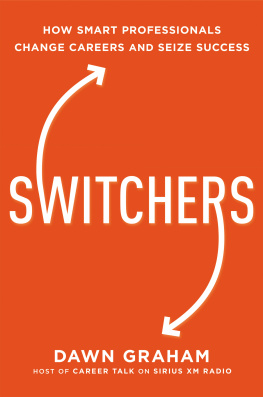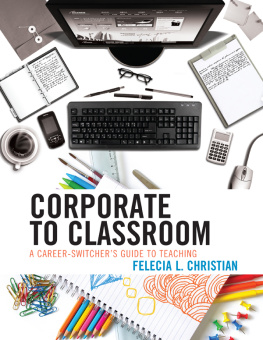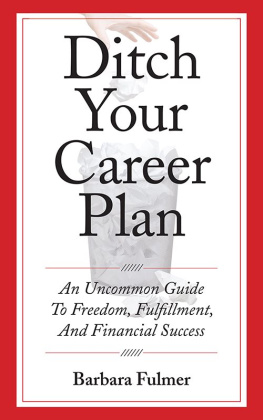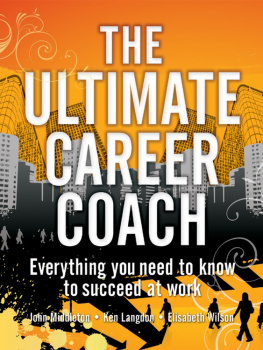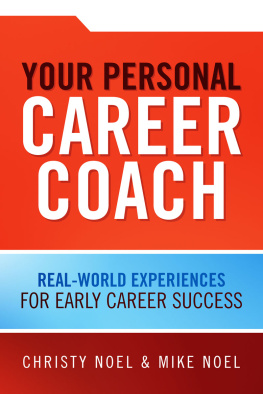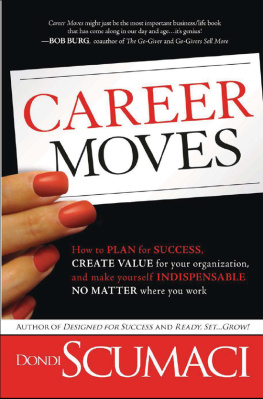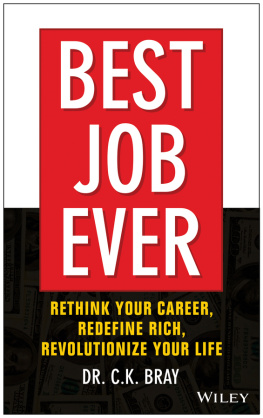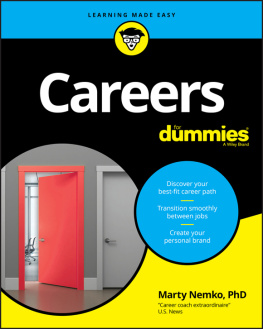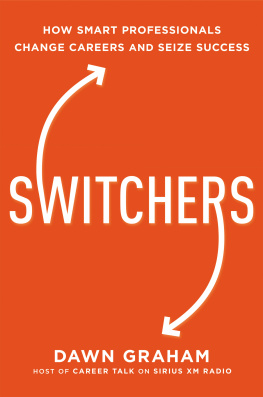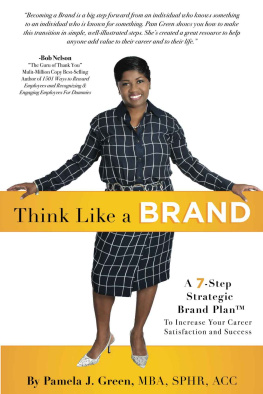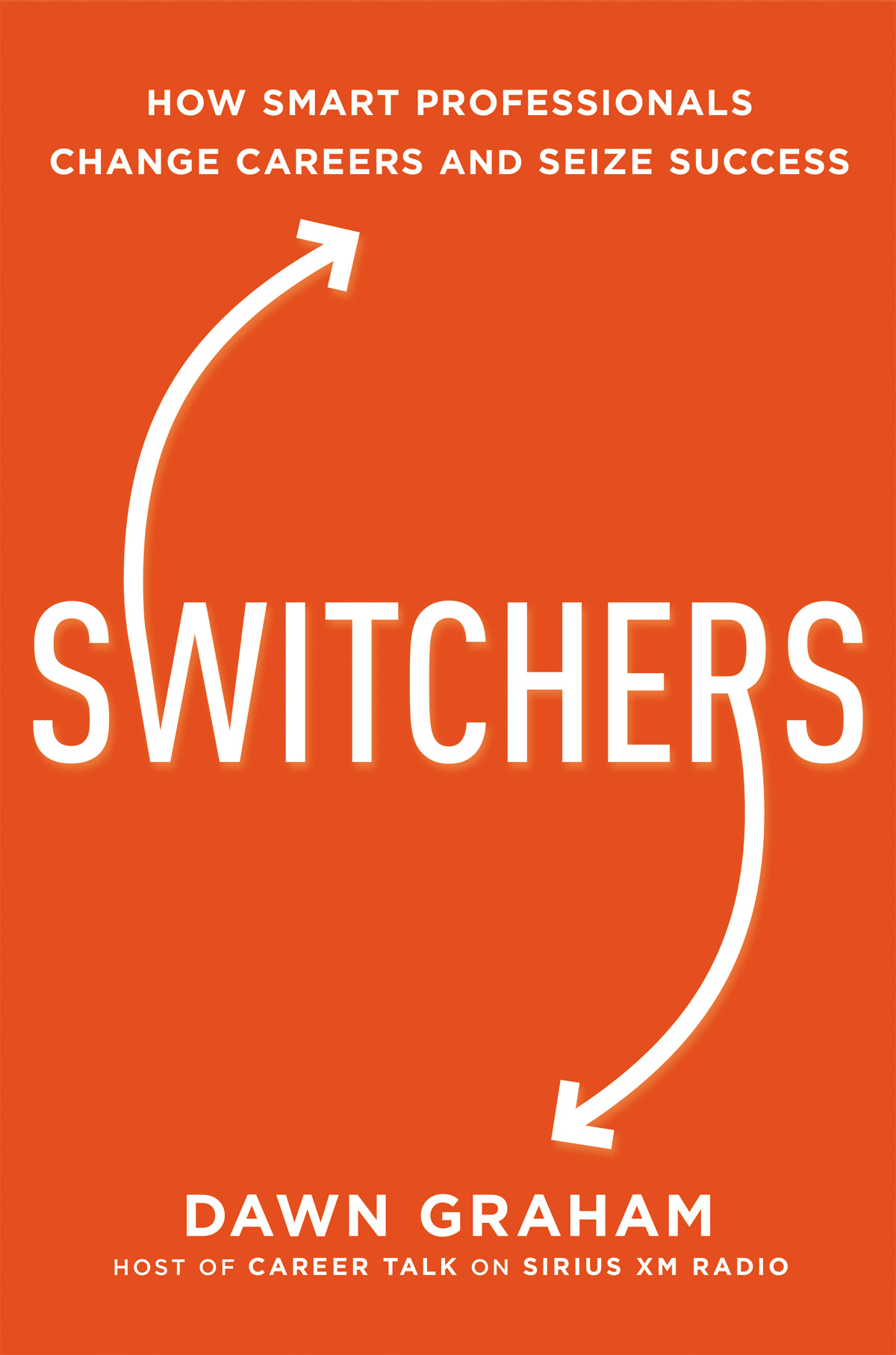CONTENTS
Guide
With each passing year, it becomes clearer to me how past experiences influence the present. The subconscious mind holds a treasure trove of memories that shape our daily actions and create infinite ripple effects. To that end, I want to thank everyone who is a part of the current that led to the writing of this book.
With special thanks to: My father, who challenged me every step of the way while being there to catch me without fail when I stumbled. You may have left this world still believing I need someone to take care of me, but its because of you that I dont. My mother (and volunteer proofreader!), who continues to be my closest friend and confidante. You taught me planning, patience, and excellence, and practice them to a level I will never attain. Ginger, ChaCha, and Aunt, strong women who blazed a trail for me early in life and sustained me as I traveled my own path. My extended family, who, despite us all being caught up in our own busy lives, will always be with me on my journey. My dear friends in New Jersey, Minnesota, Colorado, Washington, D.C., Illinois, and Pennsylvaniaplaces Ive lived, worked, grown, and probably got a speeding ticket. Youve taught me that home is about the who, not the where. Kevin and Donna, whove seen it all and still stand by me. Art Berman, my constant cheerleader, benevolent critic, vigilant brand guardian, and dear friend. There is no role you havent played on this journey, and words fall short in saying thank you. Susie Brock, your leadership wisdom lives on through this book. Cynthia McRae, my doctoral advisor, dissertation chair, and first professor of career theory. And Lily, who mostly just got in the way, but whom I adore anyhow.
My first-stage editors, Suzanne Murray and Rachel Fending at Style Matters, who helped transform a choppy PowerPoint into something that looked like an actual book. My agent, Lorin Rees, who got er done. Seth Schulman, my proposal editor, and Shawn Rodgers, who made my amateur graphics book-ready over and over.
The team at AMACOM, who coached me through the process patiently as a first-timer, especially Ellen Kadin, a true professional who explained every step along the way, sometimes twice if I needed it. Lynne Waymon, for writing the original networking book, Make Your Contacts Count, which changed me from an introvert to an introvert who networks, and Steve Dalton, for writing the book that erases ambiguity from the most unstructured part of the job search (The 2-Hour Job Search). These books have paved the way for all job seekers.
Nick Corcodilos (aka Ask the Headhunter), for your encouragement and generous coaching, and Ross MacPherson, resume guru and Mosquitos fan. My esteemed colleagues in the MBACSWP for being a sounding board and inspiring new ideas. I am privileged to be on the Board of such a talented and dedicated group of giving individuals. Julie Cohen and Ford Myers, who are both incredible career and leadership coaches, and were kind enough to mentor me when I was an intern getting started in this field. Scott Sill, the most well-connected guy I know: thank you for the many introductions, especially those that led to publishing this book. Kay Rock, who gave me my first shot at outplacement decades ago, which inspired my career in careers. The Dream Team, Michelle Stucker and Dion Simpkins at Career Talk; the staff at SiriusXM111; and all the expert guests who share their wisdom on the radio every week. The shows listeners, blog subscribers, Twitter followers, and the countless career clients who honed my skills and brand. Youve made me a better career coach and provided the motivation to write this book, creating a ripple effect that will help many others succeed on the paths that you, too, have taken.
My team and family at WEMBA, who have made me laugh every day that Ive been working at Wharton. With special thanks to Steve Hernandez and Carina Myers, my partners in crime, for keeping me (mostly) sane; Mary Gross, for paving the way and continuing to be a steadfast partner; and the executive students who push me to raise the bar year after year.
To Epic Church for working against the odds each week to reach every person in the city. To the countless individuals who have offered advice, criticism, and ideas: Ive taken every piece of feedback to heart, even if I didnt ultimately follow it. And finally, to those who said yes when I asked to network (especially if I asked to pick your brainfor which I apologize profusely). Im a firm believer that we take something away from every interaction, and your feedback and insights are woven into everything Ive become.
If youve implemented the advice Ive offered in this book and your job search still isnt picking up traction in the way youd like, it might be time to consider working with a professional career coach. A few simple strategy tweaks may be all you need to bust through whats blocking you.
First, its important to understand the role of a career coach. They are not headhunters, therapists, or placement professionals, but rather skilled advisors who help you to hone your brand, materials (i.e., resume, cover letters), and job search strategy, as well as assist you in evaluating your networking techniques, practicing interviews, and building confidence through feedback and insight. Often, they are former recruiters or placement professionals from the other side of the desk who now share their insider tips with job seekers.
Choosing the right coach might feel daunting. How do you know whos qualified? Who will help put you on the path toward your goals? Are they legit or just out to make a quick buck? Just like when youre picking a preschool for your daughter or a centrally located hotel for your trip to London, word of mouth and personal recommendations are the best way to find a compatible coach. If you have no leads, a good place to begin might be the career center from your university. They may offer services to alumni or have external coaches they recommend.
Failing that, the internet is likely your next best bet. Unfortunately, there is a lot of information to sift through online, so here are a few key criteria to help guide your decision.
Expertise and Background. While it isnt necessary for a coach to have direct work experience in the industry/function you are pursuing, it can be helpful if the coach has successfully worked with clients in related areas. As a Switcher, you will want a coach who has helped others transition into new careers and who understands the need to rebrand. Also, a prior background in recruiting or executive search enables a coach to understand the employers perspective, which can be incredibly valuable as you navigate the hiring process.
Style/Approach. As with any partnership, fit is a key ingredient for success. Consider what would be most helpful to you: flexibility, structure, an accountability partner? Some coaches have set programs and packages, while others tailor services to your individual preferences. Interview a few coaches so you can choose one whos a good match for your needs and work style. Dont feel compelled to purchase an extensive three-month package if you just want a resume review. That said, it often takes three to four sessions to assess a job seekers potential challenges and create a strategy, so dont skimp either. This may be one of the most important investments you make in yourself.
Knowledge/Education. An advanced degree or specialized certification doesnt automatically make someone an expert. In the same way, a lack of certain credentials doesnt necessarily mean someone isnt a skilled coach. Go beyond the letters after the name. Ask for recommendations, and check out the coachs website and online presence. Does he contribute to the field (via blogs, articles, discussions, etc.)? Does she stay current? Is the coach willing to provide referrals or testimonials of individuals in your (or a similar) situation?
Next page
